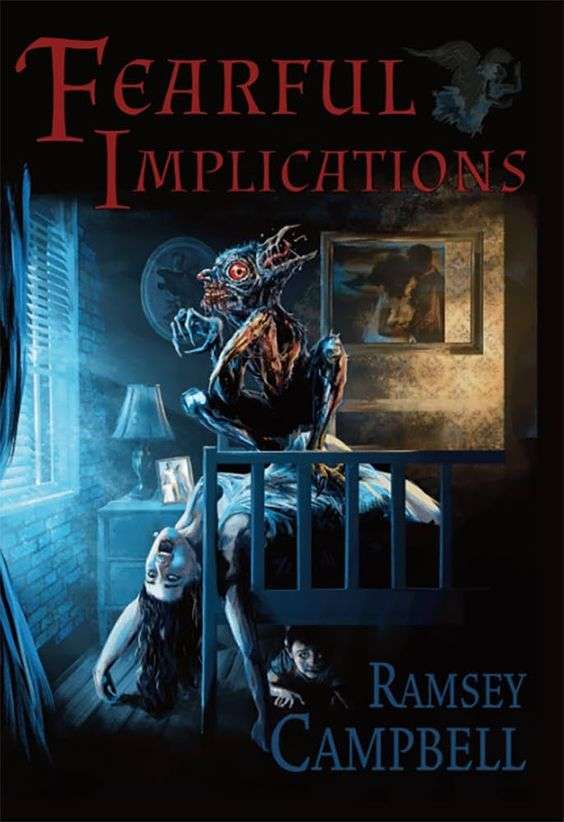Fearful Implications by Ramsey Campbell
Fearful Implications by Ramsey Campbell
PS Publishing, HB, £25.00
Reviewed by Sarah Deeming

Whenever people talk about British horror, Ramsey Campbell’s name always comes up, and for good reason. With a writing career that spans decades and three films made of his books, he has a pedigree that not many other authors can boast. So, when the opportunity arose to review his latest piece, I jumped at the chance.
Fearful Implications is a collection of twenty recent short stories that range from uncanny and a little creepy to satirical with an homage to a Quentin Tarantino movie and the horror of the inevitability of growing older. With such a wide range of topics and styles, each story felt different from the others and fresh for today’s market. I won’t go into detail about them because some of them have excellent misdirection, such as Extending the Family, and I don’t want to ruin the discovery for you. However, I will cover some of my favourites.
The collection opens with Speaking Still, which explores grief, technology and the afterlife. People believe they can still talk to their passed loved ones through readings and mediums, and Campbell takes this and looks at how technology could help us do the same. What made this story for me was not so much the uncanny element, although that was very clever in the gradual build of tension, but the way the main character, Bill, reacts to his grieving friend, Daniel. As a society, we struggle with other people’s grief as it is embarrassing. This is played out in how Bill reacts when Daniel explains his dead wife is leaving him answerphone messages. Bill’s response is very human; polite, humouring his friend’s belief, but otherwise awkward, and he immediately dismisses the whole thing when they are not together. It makes for uncomfortable reading because I suspect I would have reacted the same.
In The Run of the Town, Plater stays in a hotel after helping his daughter move into university. The story plays on the familiar trope of weird, unknown towns and villages having occult practices and the outsider getting caught up in them. In a short space of time, Campbell builds empathy for Plater, and we feel for his situation as he meets locals who all accuse him of wanting to stop their local customs when he doesn’t.
A very current story is The Stillness, about a statue of a town’s forefather removed because of child cruelty allegations when he was alive. The town’s decision to remove the statue has sinister implications as the ghosts of our past refuse to go away quietly.
My favourite is Extending the Family, a tale of misdirection, as I have already said. It is poignant, sad, and frightening for all the right reasons, current in its themes and delivery. I would love to tell you more. I want to share how it made me feel when I read the ending, but I can’t because that would spoil it for you. So, instead, I would encourage you to spend your hard-earned cash on a copy of this collection. These stories are all from the last few years, crafted with skill and expertise that demonstrate why Campbell is still one of the biggest names in British horror. Highly recommended.
